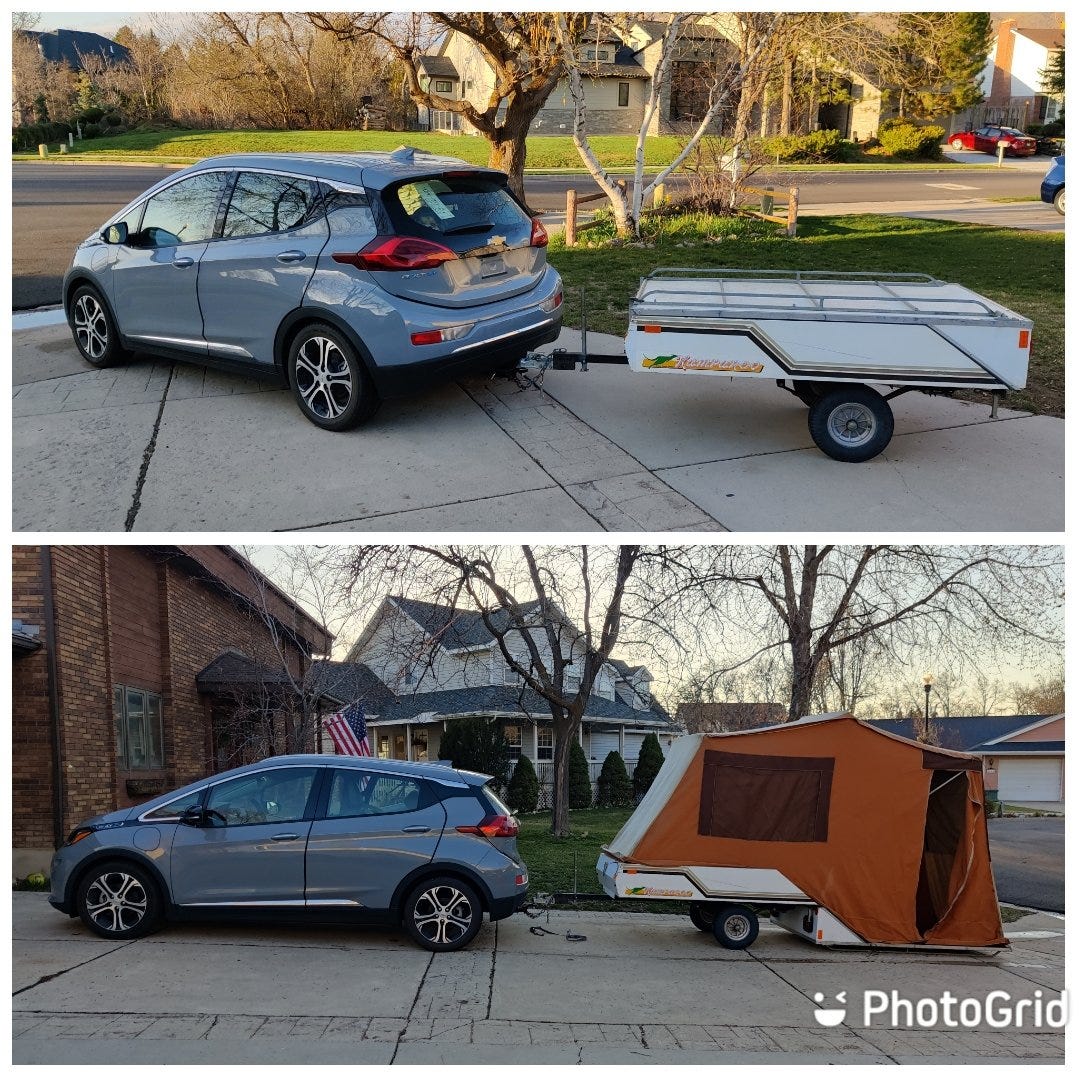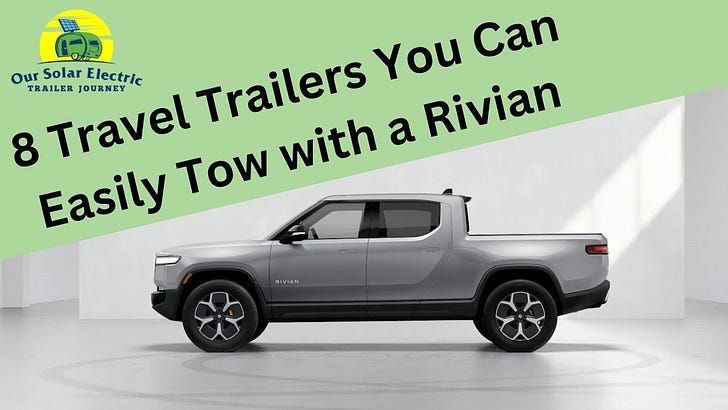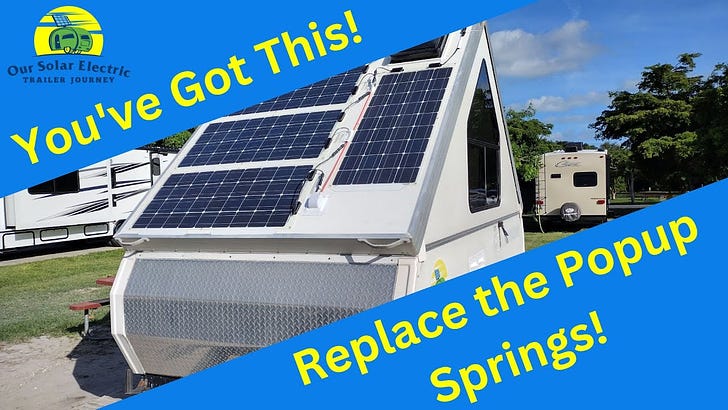Chevrolet doesn’t give the 2017 Chevy Bolt EV, the car we drive, a towing capacity rating. Some people reasonably conclude that this means it can’t tow anything. Others tow anyway.
This issue is significant because despite reserving three electric pickups, none are likely to arrive this year, and there is no guarantee that one will end up in our driveway next year. To take the next step in our solar electric trailer journey, we need to figure out what, if anything, we can tow with our Bolt so we can practice and prepare for our EV truck and a more substantial trailer.
This week, we’ve been stalking online forums for the RV community and Bolt owners. RVers scoff at the idea of towing a camping trailer with a Bolt, but the Bolt community includes lots of happy towers.
There are several trailer hitches available in the market designed for the Bolt. The most popular hitch is the Ecohitch, which includes the following description: “Rated for 300 pounds tongue weight at the trailer ball, and 2,000 pounds towing weight, this Chevy Bolt trailer hitch won’t make you leave anything behind on your next big journey.”
Several other third-party websites indicate the Bolt has a towing capacity of 2,000 to 2,500 pounds. This estimate aligns with the design of the Ecohitch.
Those towing stuff with their Bolts most often pull small utility trailers weighing under 1,000 pounds. A common use is to tow motorcycles. One forum contributor noted that he’s pulling his motorcycles in Southern California. He estimates the weight at over 800 pounds and notes that the mileage held at 3.2 miles per KwH (almost 80% of the mileage we get without a trailer). It is pretty clear that the car doesn’t stress too much under that weight.
The suspension of the car is designed to carry five passengers plus groceries. For the two of us to travel with the trailer should put less stress on the suspension than a full car without a trailer. We should be in good shape there.
The bigger problem with towing is stopping. All EVs, the Bolt included, have redundant braking systems. They have conventional anti-lock disc brakes that can stop the car as quickly as any other. They also use their electric motors to stop, regenerating energy while slowing or driving downhill.
The Bolt includes a feature not all owners use but that we always use. It has a gear marked with an “L,” suggesting low gear, but that is a misnomer. It simply has a higher level of regeneration. When you take your foot off the gas in that mode, the system recaptures more energy, and the car slows quickly to a stop. This mode allows what EV drivers call one-pedal driving. The Bolt also has a lever on the steering wheel to engage even more regeneration, helping the car slow quite aggressively.
Pairing the regeneration with conventional anti-lock disc brakes means that the collective stopping power of the Bolt should be capable of slowing the car even when towing a lightweight trailer.
Some people who tow regularly suggest that it is essential not to exceed about 80 percent of a vehicle’s towing capacity. If we use 2,000 pounds as the towing capacity for the Bolt and keep the trailer to 80 percent of that level, we should be able to tow 1,600 pounds safely. We’ll want to get as far under that threshold as possible to maximize the EV range.
We’ll explore in the coming weeks what the options are in that weight range, but we’ve done enough looking already to know we’re not talking about camping in style.
We can’t reasonably describe our estimate of the towing capacity as authoritative. If you have a Bolt and want to know how much you can tow, we encourage you to do your own research. The 2022 Bolt owner’s manual reportedly includes a warning to never tow anything.
















Share this post